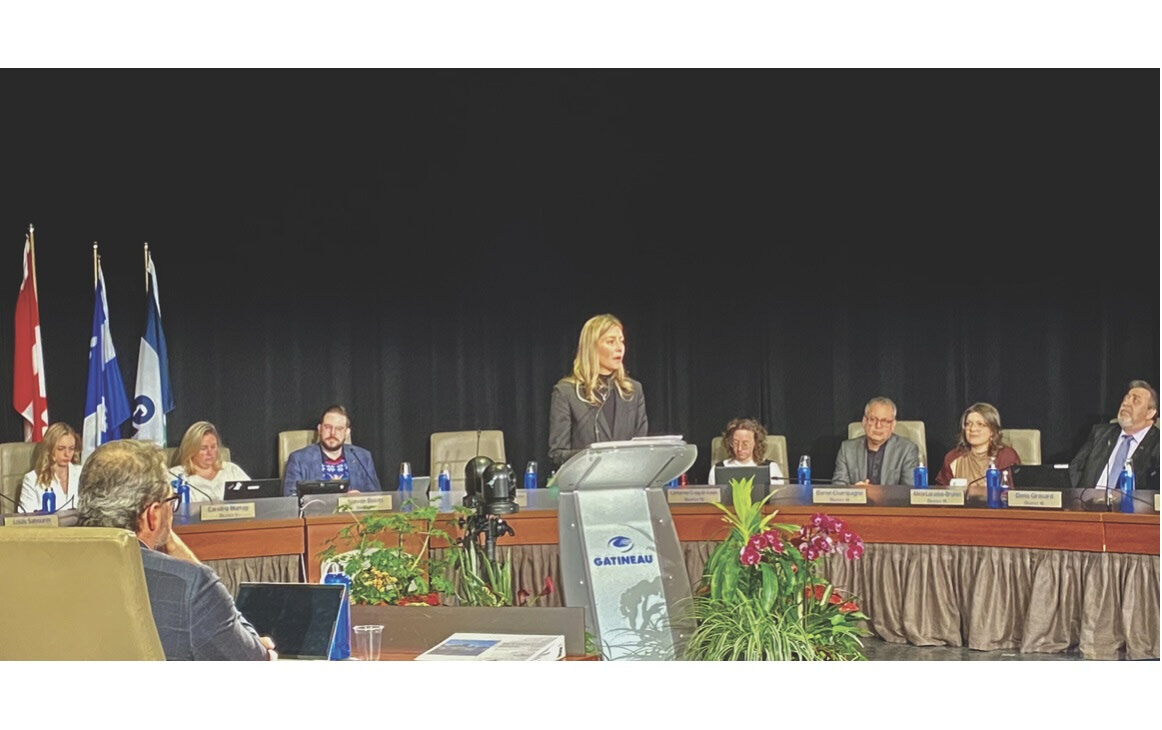10% spending increase
Gatineau approves 2025 budget despite pushback from five council members
Sophie Demers
The $887 million budget, approved on December 10, represents a 10% increase in spending compared to the 2024 budget. It includes a 3.18% tax increase for the residential sector and 4.18% for the non-residential sector.
The budget details an investment of $5 million to fight homelessness, investments in Gatineau’s climate needs and the revival of the city centre. Specifically, the largest budget allocations are $145 million for police and fire services, $140 million for public works, as well as $80 million for the Climate Plan.
“Accelerate urgent investments and reduce pressure on taxpayers. What we offer you is not a sum of numbers. It is an electroshock, a structuring response to our great collective challenges,” said Gatineau Mayor Maude Marquis-Bissonnette in her opening statement. Later in the speech, Marquis-Bissonnette stated, “I am extremely proud of the budget proposal before us tonight and the path we have taken to achieve it. City finances are well managed with tools that allow us to project ourselves in time. The level of debt is low, and we are in a good position to face the challenges.”
Fifteen of the twenty council members voted in favor of the budget while five independent councillors voted against, namely Gilles Chagnon (Lucerne), Mike Duggan (Pointe-Gatineau), Denis Girouard (Lac-Beauchamp), Jean Lessard (Rivière-Blanche) and Mario Aubé (Masson-Angers).
“The budget before us offers out-of-control spending, historical tax increases, increases in all rates, budgetary choices far from the priorities of the Gatineau residents, and spending in the place of the Quebec government. The 2025 budget of the City of Gatineau is a budget of ease because it is much easier to spend and tax than to manage and prioritize. It is visionless and too expensive for the people of Lac-Beauchamp,” said Girouard during the council meeting.
“We will reduce our spending on infrastructure. For example, our investments in paving will be maintained at $55 million in 2025, which was part of our five-year plan that will end in 2025. So, in 2026, 2027, 2028 and 2029, we will fall back by nearly $33 million per year,” echoed Chagnon in his statement. “Meanwhile, the people I meet in my door-to-door cut everywhere in their personal expenses to make ends meet, for example, fewer restaurants. We should take an example of those who tighten their belts a little.”

